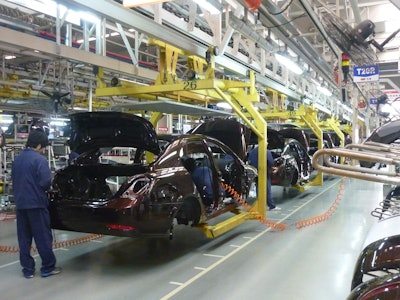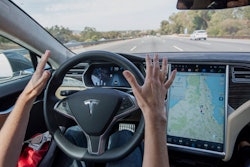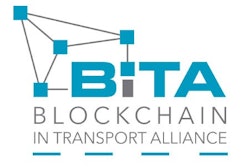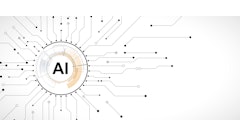
Editor’s Note: The following article is brought to you by Comarch in partnership with the Supply Chain Network.
Organizations engaged in automotive manufacturing, including high-tech products for that sector, have been active consumers of outsourcing services for a very long time. The automotive industry delegates around 80 percent of production to suppliers and third-party companies. Within this sector, there has been plenty of time to polish business relationships and contacts with external providers, and the industry has been remarkably successful at spurring innovation, reducing costs and optimizing processes. Is outsourcing the best solution to all their problems? Of course not, it very often helps the automotive industry to achieve much better benefits and optimize the functioning of the existing IT infrastructure. Let us take a closer look.
What will the car of the future look like?
The car of the future will definitely be smarter. It will be increasingly intelligent, fully connected with objects and humans, and carry many advanced instruments—electronic hardware and software—to help drivers communicate, socialize and collaborate with other vehicles, traffic signals, parking lots and retailers. Technological development changes the way cars are designed and manufactured. According to experts, the annual global sale of fully autonomous vehicles might exceed 12 million units by 2035.
It is also worth mentioning that the new automotive business model is definitely more customer-centric. Clients, who increasingly use digital sources in their decision-making processes, are focused mostly on safety, ease of use and connectivity. In the new digital world, mobility has become both shared and autonomous. Twenty years from now, cars will be radically different from the vehicles of today, and so will the driving experience.
Automotive transformation challenges
Never before has this market been so powerfully shaped by global market forces—driven to produce superior products faster and at lower cost, followed by customers who essentially want to design their own vehicles, and pushed to extend and protect global value chains. The main automotive challenges are listed below:
The need for global standardization. Retailers, large dealer groups and distributors need to introduce standards of working without losing the local touch and flavor.
The need for effective customer relationship management. Automotive business needs to strengthen organizational customer relationship management by strategically categorizing not only process, but also core and peripheral activities. While building positive relationships with customers, it is advisable to improve post-sales support and services.
The need for innovation and new business models. To meet customer demand for customized cars, producers must use emerging technologies as a means of significantly improving products and services.
The need for trust and compliance. Your security strategy needs to contribute actively to both customer loyalty and industry compliance.
The list includes only the most important issues. Some trends have a greater influence on the market, some less. But we can definitely notice that automotive IT has changed to a technology with high transformative capacity. This is mainly the effect of the development of technical capabilities and growing awareness of IT utility. All the industry challenges mentioned above can be effectively supported by the implementation of outsourcing services.
Owner or User: How do major trends in the automotive market change?
Connectivity, increasing automation and digitization are extremely important trends that will continue to change the automobile industry. On a global scale, the value of the sales in this sector is estimated to reach $6.7 trillion by 2030.
Car ownership is one of the biggest automotive trends. How many cars are produced worldwide every year? In 2016 alone, more than 70 million cars were produced. In the same year, there were 34.4 million cars on British roads. We love cars, but in the near future they will become a service rather than something we buy and own. Just look at Uber and Lyft. They provide on-demand transport services: a driver picks you up, drops you off at your chosen location and then moves to the next passenger. The shift to shared mobility enables consumers to use the optimal solution for every purpose. It is also very convenient; you do not have to buy fuel, check and replace parts, change oil, or worry about maintenance or insurance. From an economic point of view, it is also a more cost-effective solution. This trend will be accelerated due to the increasing popularity of fully autonomous cars.
Consumer preferences and behavior are an important starting point for any transformation. Consumer mobility behavior is changing toward offers tailored to individual needs. Today’s consumers have grown accustomed to high-quality digital experiences via their mobile devices. New apps and services that are mobile-friendly provide clients with always-on access to personal information. As potential car buyers, we expect automotive companies to provide the same digital experiences in a brand new vehicle.
Is outsourcing “in” nowadays?
Leaders in the automotive sector often need to make critical decisions on how to make operations in their organization much more efficient, for example whether to outsource IT services to an external provider. The effective implementation of new technology and concentration on core business activities has the power to provide a competitive advantage to almost any kind of organization. How do you combine these two elements to gain a competitive advantage? With outsourcing IT services, your organization gets a reliable provider to monitor your environment and infrastructure, manage your security requirements, help your employees with technical issues, resolve incidents and much more. Using IT outsourcing services in the automotive sector can provide multiple benefits that result in optimizing operations for efficiency, reducing costs and maximizing profitability. Choosing to offload your day-to-day infrastructure management to an experienced and trusted external provider allows your IT team to concentrate on more strategic business tasks. Additionally, external providers can support automotive business transformation and help companies in this sector to compete successfully in the global market.
Services that can be outsourced in the automotive industry include:
- Desktop support for you and your end users
- Management of your servers, routers, switches, databases and licenses
- Service desk with Level 1 and 2 product support
- Remote monitoring services
- Database support services
- Network support services
- IT infrastructure services
- Data backup and recovery to keep your organization up and running in the event of a disaster
There are the four main reasons why organizations in the automotive sector outsource IT services:
- Better allocation of resources. IT outsourcing can give the organization an opportunity to redesign resource allocation. Outsourcing helps you to focus on more important but sometimes neglected tasks.
- Transfer IT tasks to specialists. If your organization does not have the budget or the resources to maintain an in-house IT department, having an external service provider can take on the burden of IT management.
- Gaining industry insights. It’s practically a full-time job to keep up with updates and programs that are released. Your outsourcing provider already has the skilled staff with the expertise you need to make sure you are up to date with technology. They are familiar with key industries and customer-specific standards, so can provide services that support your business effectively.
- One external provider can deliver a comprehensive portfolio of IT services covering applications and modern infrastructure to help you address major challenges and support you in your transformation journey toward better profitability and increased competitiveness.
Unlock the business value with IT outsourcing services
IT providers already support the automotive industry with advanced IT solutions and services across the entire value chain, from suppliers to consumers. New technology helps companies to run highly efficient operations across different business and IT functions by leveraging IT operations and IT infrastructure operations.
This is the perfect time for automotive companies to align themselves strategically with the changing environment and focus on their core competences of delivering better products, strengthening their brand value and supporting environmental protection. Outsourcing some processes, including part of the IT infrastructure, gives automotive companies the advantages of improved customer satisfaction and lower operating costs, while strengthening their post-sales service level. Below you will find some rules that will help you succeed using external providers:
- Retain expertise
- Pay special attention to processes that can give your company a competitive edge
- Continuously challenge suppliers to deliver improvements
- Ensure cost and performance transparency
Outsourcing services, executed properly, will help you to manage IT as a core component of your automotive business and a key factor of its success.


















![Pros To Know 2026 [color]](https://img.sdcexec.com/mindful/acbm/workspaces/default/uploads/2025/08/prostoknow-2026-color.mduFvhpgMk.png?ar=16%3A9&auto=format%2Ccompress&bg=fff&fill-color=fff&fit=fill&h=135&q=70&w=240)
